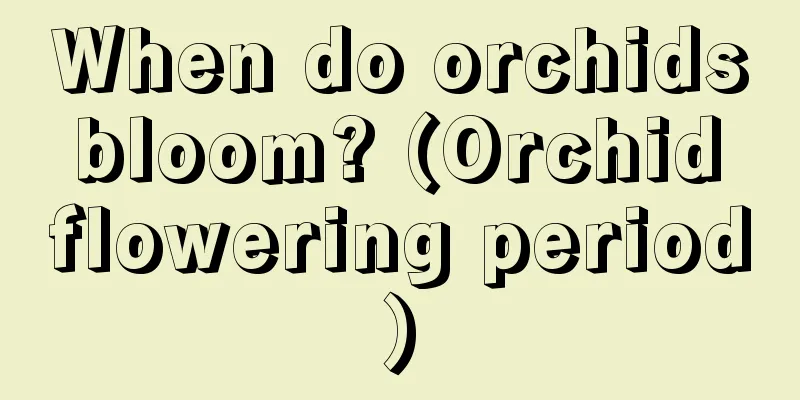This thing costs less than 1 yuan. Just cut a branch and stick it in there, and the pot will bloom in 1 month!

What is floral mud?Floral mud is a dark green, rectangular brick-like tool for flower arrangement. It is as light as foam when dry, but as heavy as a lead block after absorbing water. It can be used to fix the cuttings and also to keep them moist. Floral mud is very cheap. You can find it everywhere if you search online, and a piece costs less than 1 yuan. How to make flower mud branches?Flower mud branch cuttings are more suitable for roses, roses, roses, clematis and other flowers. step 1. Cut the flower mud into small pieces and soak them in clean water for more than a week, changing the water every day; 2. Cut a piece of healthy rose branch with 2 to 3 tender leaves, cut the upper part flat and the lower part diagonally downward as a cutting. 3. Insert the cuttings directly into a small piece of floral mud, about 2/3 deep, then place them in a tray with water and soak them in water. Pay attention to maintaining them in a place with scattered light. 4. After roots emerge from the bottom, start potting. 5. When potting, add floral mud together. The soil can be a mixture of loose and breathable nutrient soil or peat soil and perlite. After potting, just maintain it normally. How to make flower mud buds?Flower mud bud cuttings are generally more suitable for plants such as Kalanchoe, camellia, green ivy, and dahlia. step 1. Cut off the terminal buds that are healthy and free of diseases and insect pests, cut off the lower leaves, and keep 2 to 3 leaves on the top. 2. Soak the selected cuttings in a 500-100 times diluted carbendazim solution for one day, then rinse them with clean water and set aside. 3. Insert the cuttings into a small piece of floral mud soaked in water, about 2/3 deep. After planting, place it in a shallow basin of water and observe the rooting. 4. After rooting, put it in a pot and place it together with the floral mud in the potting soil. The soil can be prepared with nutrient soil, humus soil, etc. mixed with perlite. Water it thoroughly once, and then place it in a cool and ventilated place for maintenance. How to make flower mud root grafting?Flower mud root cuttings are more suitable for flowers such as peonies, peonies, and wintersweets, as the roots of these flowers can also produce adventitious buds. step 1. Select healthy plants, dig out the roots, and cut them into 4-10 cm root segments. 2. Cut off the rotten roots and cut off the excess branches, then place them in a cool and ventilated place to dry. 3. Insert the root segment obliquely into the floral mud and place it in a shallow basin with water for maintenance. 4. After the new buds grow, put them into the pot together with the floral mud. The potting soil can be loose and breathable granular soil. Keep the soil moist and place it in a ventilated and bright place for maintenance. Flower lovers, have you learned it? If you have any other questions, Remember to leave a message to ask Huahua~ |
>>: How to graft big-leaf banyan onto small-leaf banyan
Recommend
What causes black spots on orchid leaves?
1. The temperature is too low 1. Reason: If the o...
How to grow lucky bamboo to make it more vigorous (water and soil)
1. Water culture method 1. Water quality: When gr...
How to take care of the newly bought jade ornaments
1. How to deal with newly bought jade ornaments I...
How to prune camellia
Pruning methods There are many ways to prune came...
Flowering period and management of Dutch chrysanthemum
Flowering period of Dutch chrysanthemum Chrysanth...
Spring foal trimming time
1. Pruning time 1. The first time: There is no fi...
How to cultivate egret grass
Growth habits of Heron Grass Grebe grass not only...
How to care for newly bought osmanthus
1. How to deal with newly bought osmanthus When y...
How to prune three-leaf plum
When to prune clover Spring is the period of budd...
How to deal with the fortune tree after buying it, what kind of water can be used for watering, and how to keep it alive
1. How to deal with it when you just bought it Wh...
What are the methods and precautions for raising little angels?
How to breed little angels Little Angel, also kno...
How to cultivate lotus leaf correctly
Growth conditions of lotus One-leaf lotus is afra...
Will Clivia sprout again after its heart rots? How to deal with it?
1. Can it still sprout after the heart rots? Hear...
Can lilac be grown in pots?
Can lilac be planted in a flower pot? Lilac can b...
How to grow potted grapefruit trees
illumination Pomelo trees will only grow well in ...









